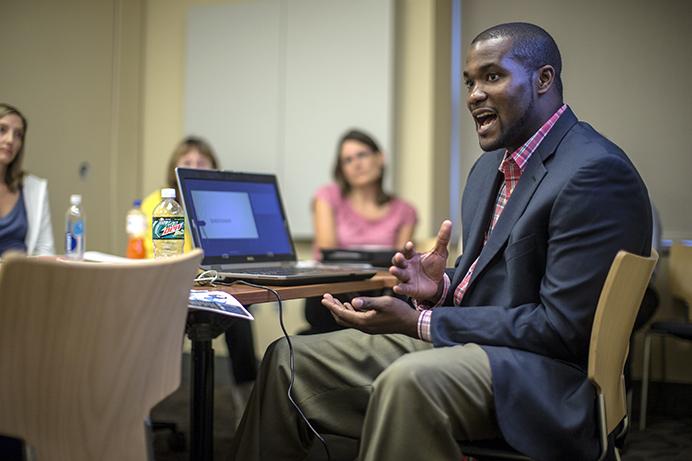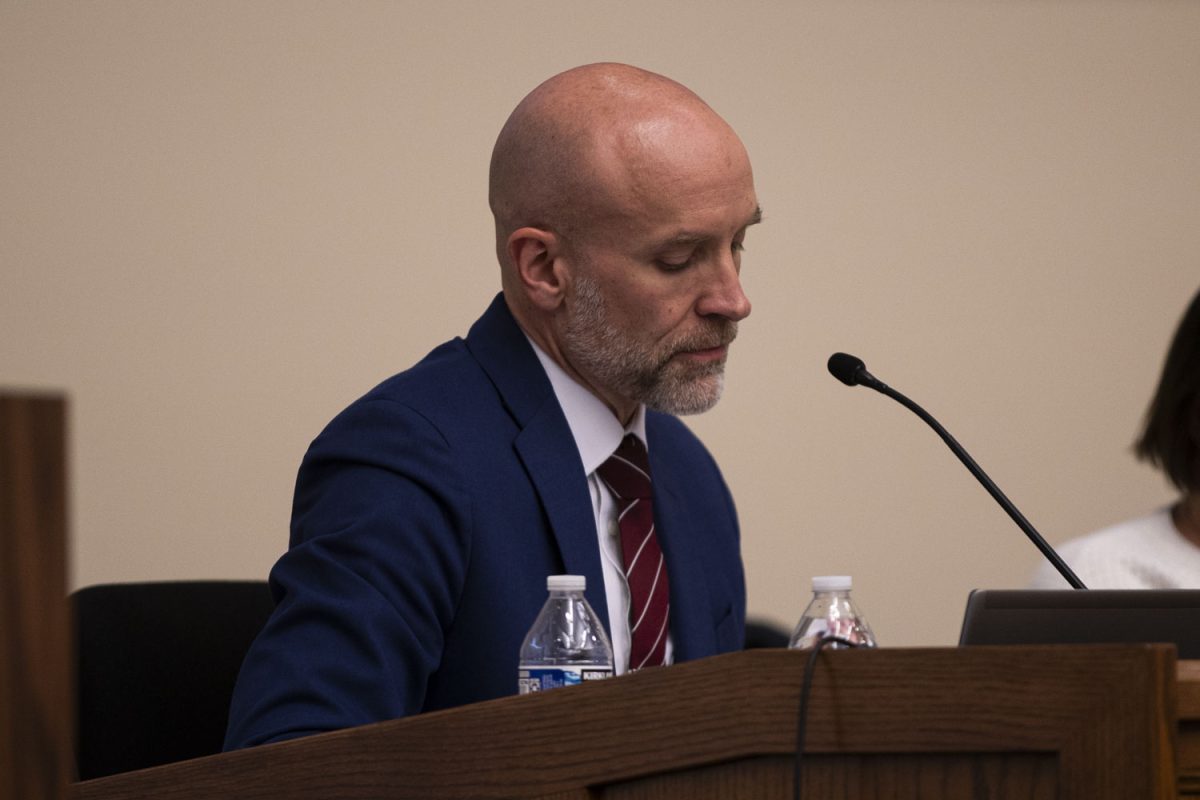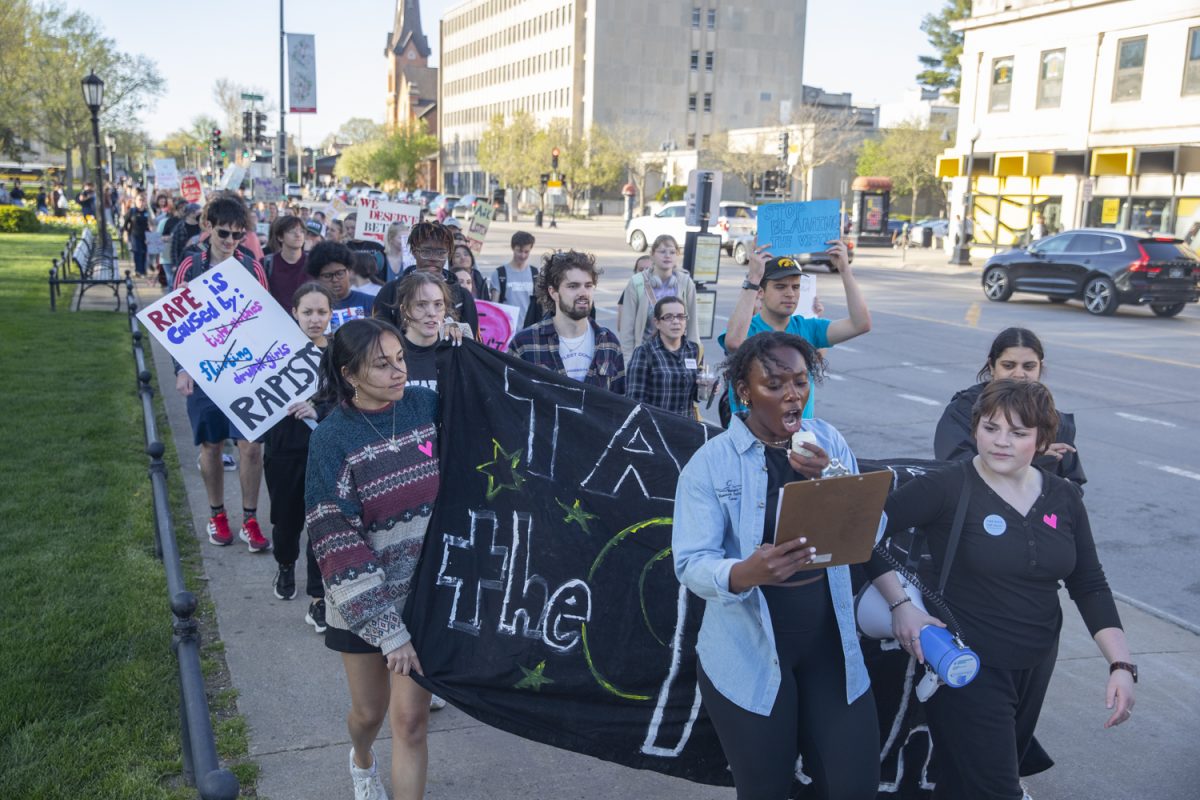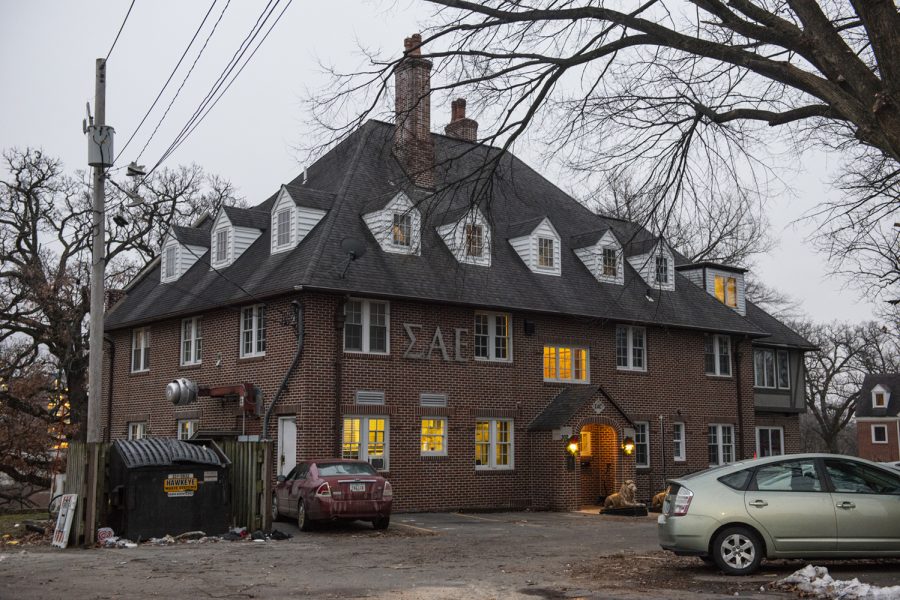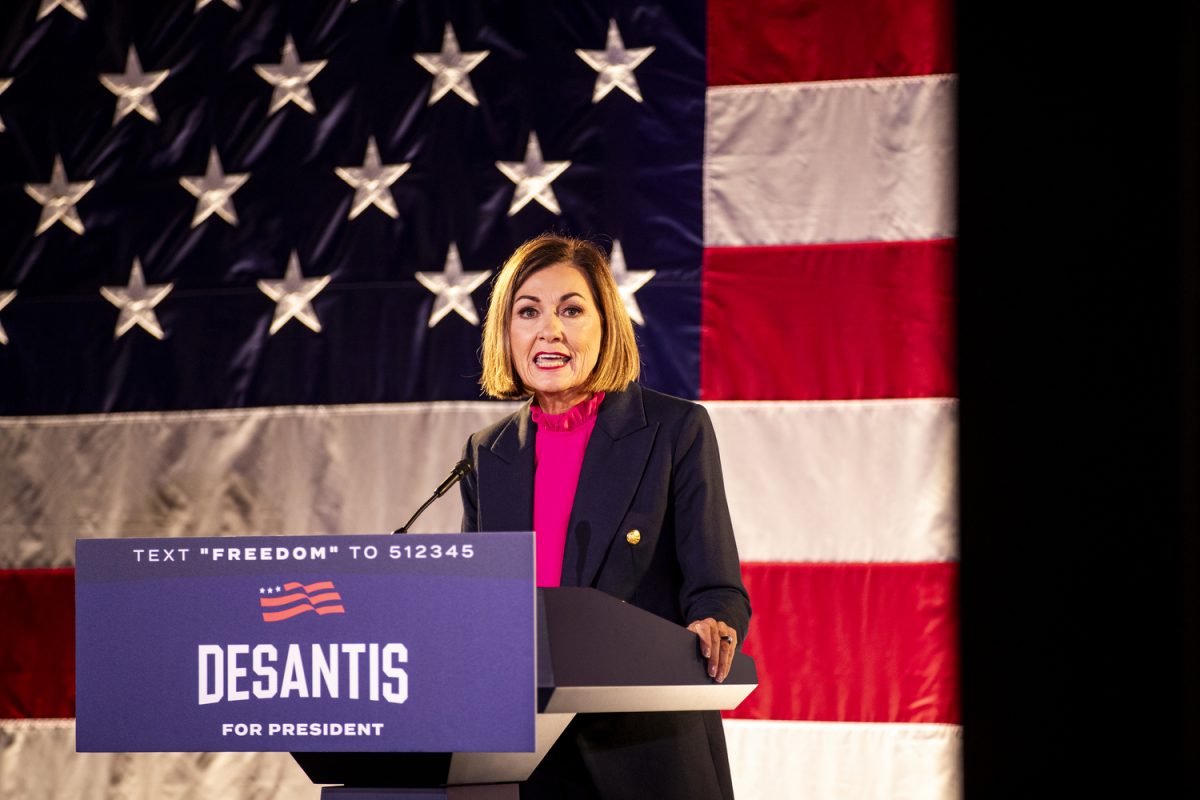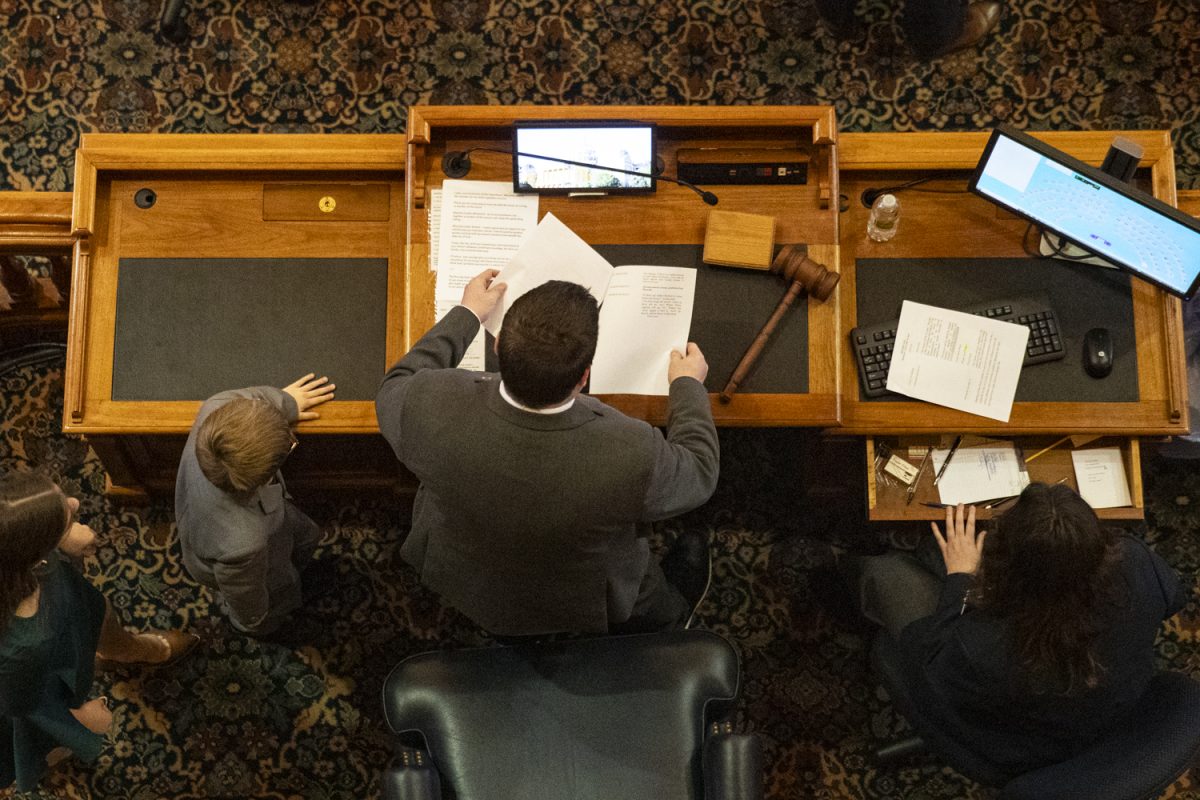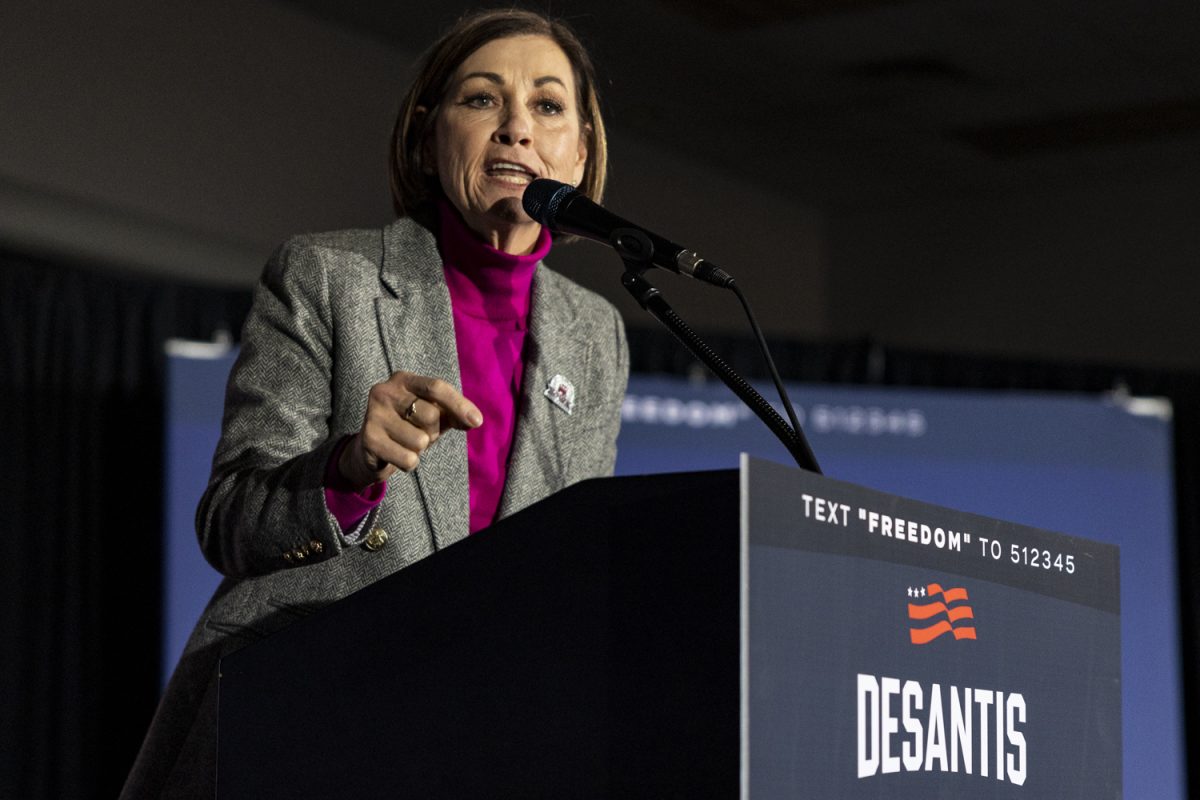The average University of Iowa student cannot name the governor of Iowa, the mayor of Iowa City, or who represents them in the state Legislature.
Benjamin Nelson, a Burlington, Iowa native, is the Iowa City City Council liaison for the University of Iowa Student Government. He believes many students have a strong tendency to think that “bigger is better” when it comes to political issues, which isn’t always the case.
UISG President Jacob Simpson said students should make more of an effort to keep themselves educated because local and state officials often have more power to make change in students’ daily lives than they realize, creating policies that regulate tuition, housing costs, and minimum-wage adjustments.
“One of the reasons that we’re seeing tuition increase, for the past couple years and into the future, is because the state has under-resourced our institution, and therefore the university has to make up that difference in resources with our tuition,” said Simpson, who is originally from Clinton, Iowa. “If we pay attention to our state government, we can make sure our elected officials are held accountable in making our education affordable, accessible, and quality.”
The complex political machine of the United States could be most easily divided into federal, state, and local politics.
Kelly Shaw, a lecturer in the Des Moines Internship Program, said students can be aware of local politics but are not as thoroughly engaged as they should be. The program is run by the UI Political-Science Department and provides undergraduate students with internship opportunities in Des Moines. Shaw is also the mayor of Indianola, Iowa.
Shaw said the true effect of local politics can be less familiar to students because of a nationalization and consolidation of major media outlets. National media outlets that are familiar to students, he said, such as CNN, tend to focus their attention on issues above the local level.
Students such as Mikayla McDowell, a UI freshman from Boone, Iowa, tend to gravitate toward these major media outlets for their information, and as a result, inadvertently overlook local issues. McDowell said she doesn’t think to check local media as much as national media simply because national media sources seem more accessible.
This belief is reflected by others among students, including UI sophomore Mikaela Morton, from Yorkville, Illinois.
“The majority of what I hear and see is more national,” she said. “I don’t know if it’s because I don’t really look into [local politics], or I just don’t hear much about it, or it’s not anywhere that I am, like social-media-wise, but I don’t see it as much as national.”
Timothy Hagle, a UI associate political-science professor, said mass-media coverage of local politics has to be deliberately sought out, and students would have to pour more of their already limited time into educating themselves.
A local GOP leader agrees.
“It’s hard for [students] to find relevance in their own lives, and it’s hard for them to find time in their busy lives,” said Patrick Wronkiewicz, the chair of University College Republicans who is from Chicago. He said national-level politics, with its focus on often controversial big-picture issues, can create the illusion that anything occurring at the local level is somehow unimportant.
“People like issues that are bigger, and I think local issues are often small and … there’s a lot of nuance and detail in those issues. Whereas national campaigns run on platforms that are broad and based on these big-ticket-type issues,” said Riley Lewers, the president of the UI College Democrats. Lewers, who is from Iowa City, said that as a result, she feels a strong connection to local politics.
According to fall 2016 statistics from the UI Admissions Office, roughly 45 percent of the school’s 33,334 students are from outside Iowa. According to a 2013 survey conducted by the Des Moines-based Iowa Workforce Development, approximately 90 percent of out-of-state students at regent universities were likely to either leave Iowa after graduation or were unsure about their plans.
As a result, students tend to be a highly transient population. UI sophomore Carly Crothers is originally from Des Plaines, Illinois, and only moved to Iowa City for college. She said that because she will leave town in a few years, she has a lack of awareness about local politics and issues.
But UI junior Nawful Kulam, who is from Naperville, Illinois, says being a part of the Iowa City community for only a short time does not excuse students’ apathy about local politics.
RELATED: Bond vote to affect off-campus UI students
“A couple years is still an important time, and different policies can impact people regardless of where they’re living,” Kulam said. “The city’s policy on cracking down on underage drinkers, for example, that’s something that will affect people regardless of how many years they’ve spent living in Iowa City, so I would stay informed on different policies and different laws, because even though I don’t permanently live here, while I’m here, those laws still apply to me.”
Shaw said this lack of awareness on the part of students can create a gap in whom city and state politicians listen to.
“A lot of times, it boils down to who’s paying attention, and as elected officials, we want to please as many people as possible,” he said. “It’s oftentimes hard to get a sense of where students are on certain issues, and so when it comes time to make policy or fund certain things, it’s usually the group that is not the squeaky wheel that will be left out.”
However, the fault for this gap may not lie entirely with students. Iowa City City Councilor Kingsley Botchway, said local officials could make more of an effort to reach out to students and more regularly interact with them.
“I feel like we as a city haven’t reached out as much as we should have,” he said. “For me, I think we need to look beyond what the students are doing ‘for us’ by coming to these different [city] events, but more so think about what events we can go to to find out what the students are engaged in and whether or not we can either help or talk about what the city is doing to promote student issues.”
For students, getting involved in local politics during their time in Iowa City could be considered less of a waste of time and more of an investment in the future.
“I think it’s a good thing to know about the politics of wherever you are, especially because you kind of want to get a good idea of who are the leaders making decisions on your behalf,” said UI sophomore Hunter Staszak of Downers Grove, Illinois. “Maybe I’m only a student here for three years, but I think there’s a lot to be gained from understanding what’s going on in the community and the decisions that are being made. Because if something is not going the way that you like, being informed about those issues really does help so that you can take action.”
Resources exist to help students become more informed. Hagle and Shaw recommend checking local media outlets regularly as well as contacting city and state officials. And the top UISG official goes along with that.
“I believe that every single young person has something they should care about at the local level,” Simpson said. “It may just take some research on their part to discover what that issue is.”




